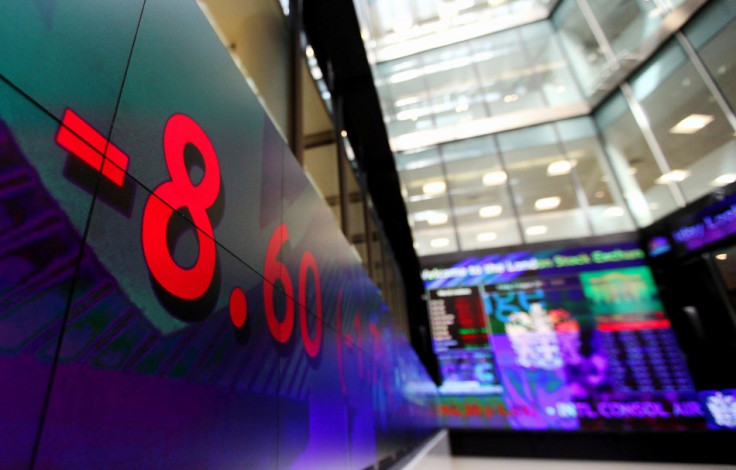FTSE 100 performance does not reflect our Brexit economic anxieties
With the UK's blue chip index at an 11-month high, can we seriously say that all Brexit fears have subsided?

The FTSE 100's rally in the wake of the UK's vote to leave the European Union has been deemed as nothing short of remarkable by many Brexiters. The likes of recent prime ministerial wannabes Andrea Leadsom and Boris Johnson, and broadcaster Piers Morgan, have hailed the fact that London's benchmark stock market index only momentarily faltered the morning after the 23 June referendum, before bouncing back.
Within a week of the referendum, or 30 June to be precise, the FTSE 100 was actually well clear of its closing level on the eve of the poll. Yet again, many took to the airwaves, as well as that bastion of informed public discourse, Twitter, to laud the rise of blue chips and flag it up as a sign of market confidence.
Now that the FTSE 100 is at an 11-month high, can we seriously say that all Brexit anxieties have subsided? An examination of the minutiae of how the market works; the fickle nature of global investor appetite and what sort of companies grace our blue chip index would suggest the answer is a firm 'no'.
The London Stock Market, by its very nature, is global. Some of the leading companies in the world covet a listing on it and by virtue of their market capitalisation end up among the top 100. By that same token, many of the 100 are anything but British facing businesses.
Almost 25% of the FTSE 100's headline valuation is shared by five companies – Royal Dutch Shell, BP, HSBC, British American Tobacco and GlaxoSmithKline. The five might well be UK brands, but by their very nature remain outward facing multinational corporations, for whom the British market constitutes a very low percentage of their business.
When people – from home or abroad – invest in them, or speculators take a gamble on their prospects, few, if any, pay attention to the relatively minor exposure of these companies during the current dour mood in the UK.
Going beyond the big five, 75% of the FTSE 100 is dollar facing, and many publish financial results in dollar denominations. At the same time, the pound - a currency in which all UK listings are priced - is still trading below levels last seen in 1985, despite a recent recovery.
It has meant that seasoned investors and funds stateside have poured in to the market looking for blue chip bargains. More so, on continuing expectation of quantitative easing by the Bank of England, and a possible interest rate cut that is bound to lower the pound further.
While the Twitterati, politicians and celebrities concentrate on the FTSE 100's closing level, another more important, yet similarly positive way to measure sentiment, is more telling. On 11 February, when Brexit chatter was at its peak, with none of what has since unfolded on the horizon, the FTSE 100 fell to 5,537 points.
On Monday (11 July), the blue chip index closed over 20% higher than that level. It is what's described in the market as a 'technical bull run'. The chief architects of this particular bull run were miners BHP Billiton, Rio Tinto and Glencore, none of whom have any substantial mining operations in the UK, but benefitted during the session from an uptick in metal prices.
This was in tandem with the recovery of UK housebuilders, which directly benefited from Governor of the Bank of England, Mark Carney, hinting at an interest rate cut. Neither were a result of a material improvement in economic confidence.
I feel it is prudent to mention, I am not suggesting the FTSE 100's stint in positive territory is not a good thing. However, there are better barometers of the macroeconomic concerns the UK has to square up to over the coming years as a Brexit is negotiated.
Business sentiment and consumer confidence surveys point to a dark mood in the market while the more homeward facing FTSE 250's direction demands greater scrutiny over the coming months, not weeks, in relation to an expected easing of monetary policy by the Bank of England.
Generally speaking, commentators, including the International Monetary Fund, fear a very real and tangible impact from Brexit on the British economy's medium term prospects. Quite frankly, no one has a crystal ball to peer into. We are in uncharted waters, but latching on to the prospects of the FTSE 100 for a modicum of comfort in uncertain times is not a wise idea.
Gaurav Sharma is the Business Editor of IBTimes UK. He has been a financial journalist for over 15 years, with a core specialisation in macroeconomics and commodities. Follow Gaurav on Twitter here.
© Copyright IBTimes 2025. All rights reserved.




















